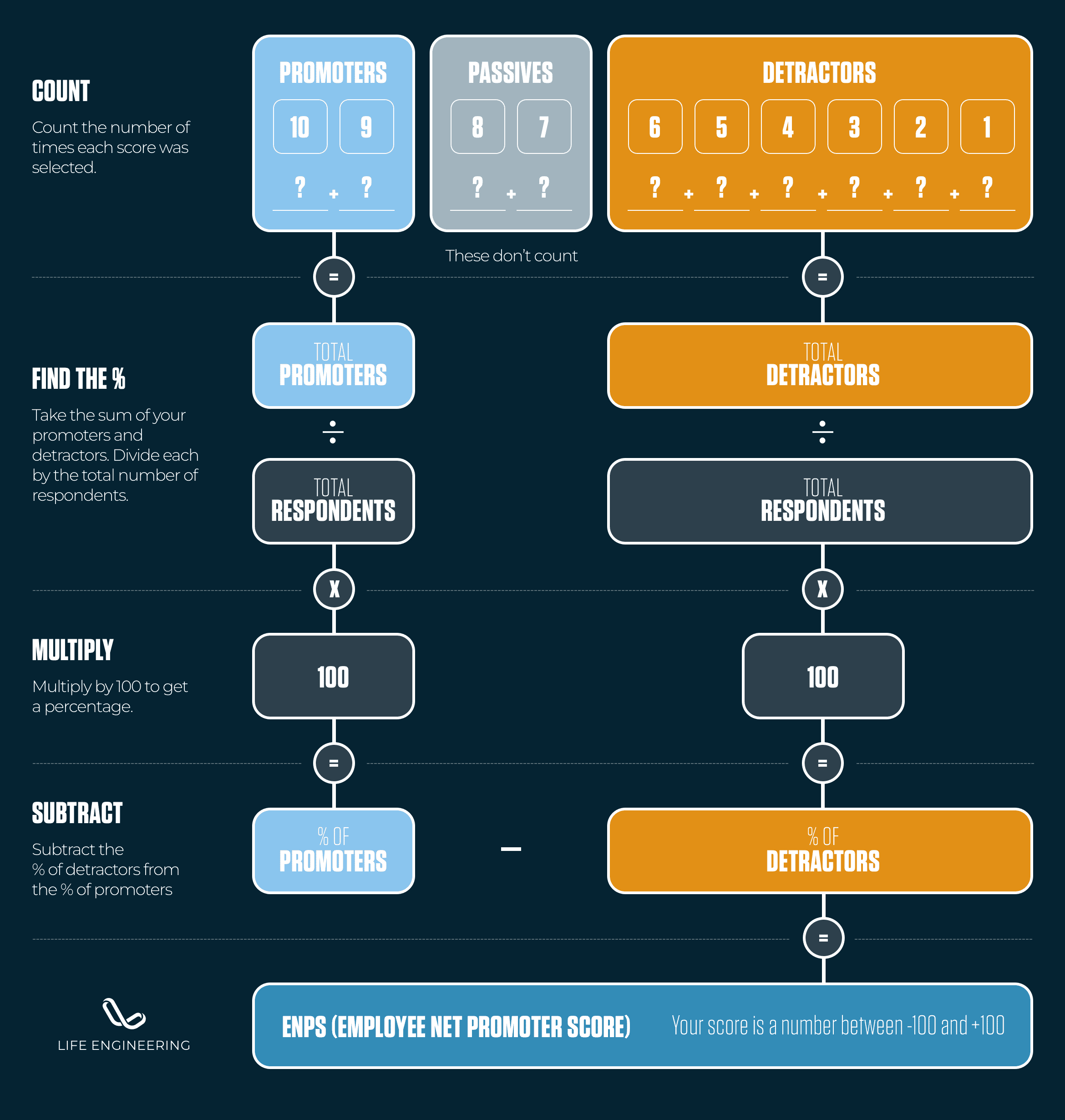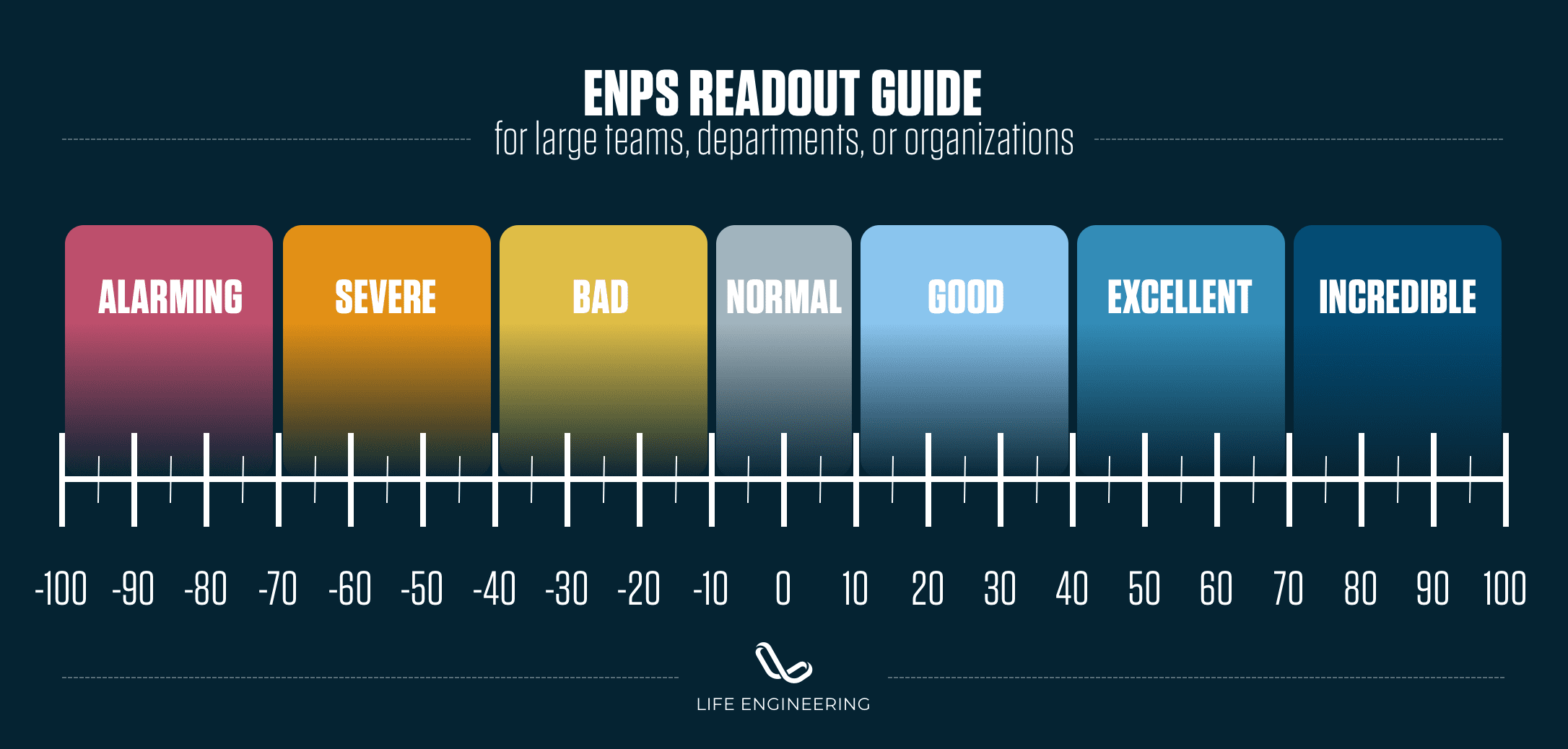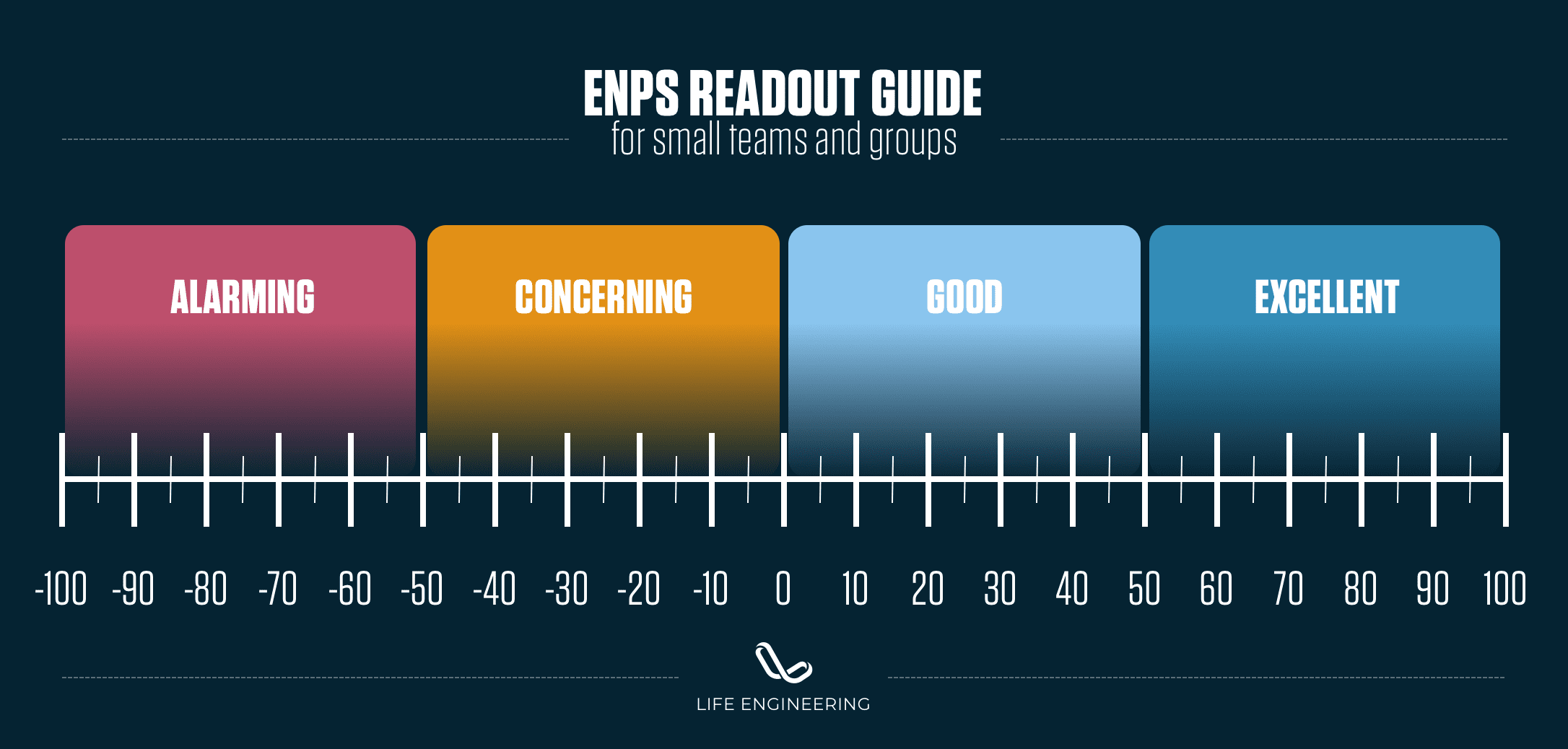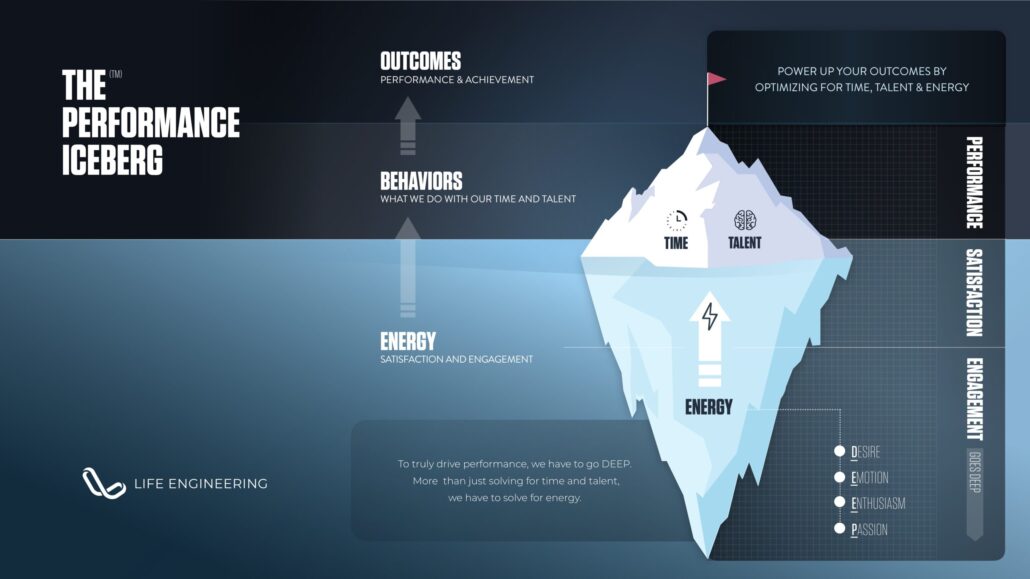enps, an overview
The ENPS (or Employee Net Promoter Score), has become an industry standard for measuring employee satisfaction.
ENPS asks employees one simple question: “How likely are you to recommend our company as a place to work?” Often with a follow-up of “why?”
ENPS gives you a high-level perspective into a team’s overriding employee sentiment.
For this reason, it can be valuable (especially if done frequently) to help you keep tabs on employee satisfaction over time. ENPS tends to map directly to Customer NPS.
what is enps
You’re probably already familiar with the Net Promoter Score (commonly referred to as NPS). You’ve seen those surveys that ask “How likely are you to recommend this product to a friend?” That’s a standard “NPS Survey.”
NPS was developed in 2003 by Fred Reichheld, a partner at Bain & Company, as a way to measure customer loyalty. Drawing on correlations across a huge amount of data, they tested a variety of questions to see how well the answers correlated with desired customer behaviors.
The outcome was clear; one question worked best: “How likely are you to recommend this product to a friend?”
High scores on this question were strongly correlated with other business outcomes like repurchases and referrals. As it turns out, and perhaps unsurprisingly, willingness to recommend is the strongest indicator of satisfaction.
Put simply, NPS is a measure of customer advocacy… how willing customers are to advocate for your product or service. Measuring it over time is a fantastic way to identify an organization’s ability to turn customers into advocates.
Seeing how effective this one simple question was at measuring customer satisfaction, Apple decided to try it out as a way to measure employee satisfaction by slightly modifying the question.
They asked “How likely are you to recommend Apple as a place to work?”
This became known as ENPS (or employee net promoter score). It’s an incredibly effective (and efficient) way to quickly get to the heart of employee satisfaction and advocacy.
enps measures satisfaction
As ENPS is currently the industry-leading metric for measuring employee satisfaction, it’s important to understand what “employee satisfaction” actually means.
Click here or on the image to read more about employee satisfaction and how it relates to employee performance, employee engagement, and core organizational metrics like employee turnover, employer brand, employee absenteeism.
You’ll find out how employee satisfaction correlates to customer satisfaction, and other organizational outcomes.
how enps works
For ENPS, employees are asked a single question: “On a scale of 1 to 10, how likely are you to recommend our company as a place to work?”
Promoters (9-10)
Your Promoters are the people who rate you a 9 or a 10. As you can see, that’s a pretty high requirement to get a “promoter.” But what the research shows is that it takes this level of positivity to equate to actual advocacy (willingness to recommend). We deconstruct the psychology of this and the emotions employees feel in each stage here. As you can expect, your promoters positively impact your ENPS score.
Passives (7-8)
Your Passives are those who give you a score of 7-8. Again, you may feel like someone scoring you an 8 out of 10 is a pretty high score to be called “passive.”
But the research shows that if people rate you between 7-8, they’re more likely to say nothing than to actively advocate for you. Because of this, these people are simply ignored in your ENPS score.
Detractors (0-6)
Your Detractors are anyone who rates you a 0-6. Again, you might wonder why, if a score of 5 is average, and a 6 is better than average, these would count as detractors.
Again, we’ll get to the psychology of this in a minute, but the research shows that if someone rates you a 5 or a 6, they’re actually more likely to talk negatively about you than say something positive (or say nothing at all). Detractors negatively impact your ENPS score.
how to calculate enps
The formula for calculating ENPS is simple. You take the percentage of respondents who are promoters (those who rated you 9-10), then you subtract from that the percentage who are detractors (those who rated you a 1-6).
The result is a number between -100 and 100, and that is your ENPS, or employee net promoter score.
Here’s a visual to help explain the ENPS formula.

Note: Because of how hard it is to get promotors, ENPS scores are often not very high. A 30-50, for instance, is really good.
Understanding your enps score
Interpreting your ENPS score can be difficult, and there’s no absolute interpretation of what an ENPS means.
But as ENPS has matured, our research has found a generalized model that has materialized that can help you better understand your score.
This first model works better for large teams, departments, or whole organizations, as opposed to small teams. With more data points, it’s possible to get a little more granular in your interpretation. The following is a very general assessment of ENPS health, and may not “absolutely” represent what your specific ENPS might mean.

team enps scores
While it’s hugely valuable to look at ENPS across the entire organization, segmenting that score by firmographics such as by team, department, geography, or sometimes more fascinatingly, by something like tenure, can yield additional insights.
But when segmenting data like this, you can dramatically reduce the sample size (the number of respondents in the report), calling for a different readout guide.
For this, the small-team model can be more applicable, especially if there are fewer than 20 total respondents in the survey.
It has less granularity as the large department or organizational guide, but still offers a general outlook on interpreting your score. Remember that your specific interpretation may vary.

When it comes to any ENPS score, what it means can be very specific to the team being measured. Some teams can thrive on relatively low scores, while other teams would languish under those same scores.
So when looking at ENPS for a team, it’s particularly important to focus mainly on the improvement of that score for that team over time.
There is value, of course, in seeing how one particular team scores relative to others, in that it can help you identify pockets of the organization that may need extra attention.
But the most value of ENPS at the team level is being able to quickly and easily monitor sentiment over time, to detect when it is deteriorating, or to measure the impact of your satisfaction initiatives.
get custom
coaching & Consulting
If you’ve gotten your results and would like further help in understanding what they mean, or if you’d like help knowing what you can do to optimize Team Satisfaction to create the strongest probability of success, we’re here to help!



Responses